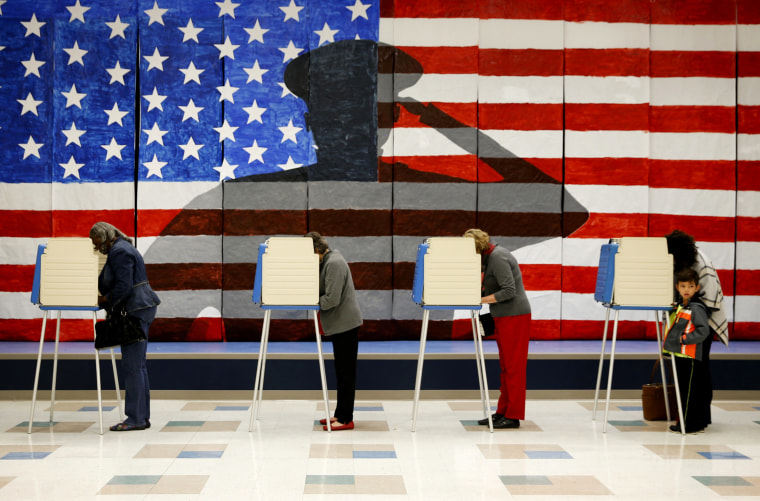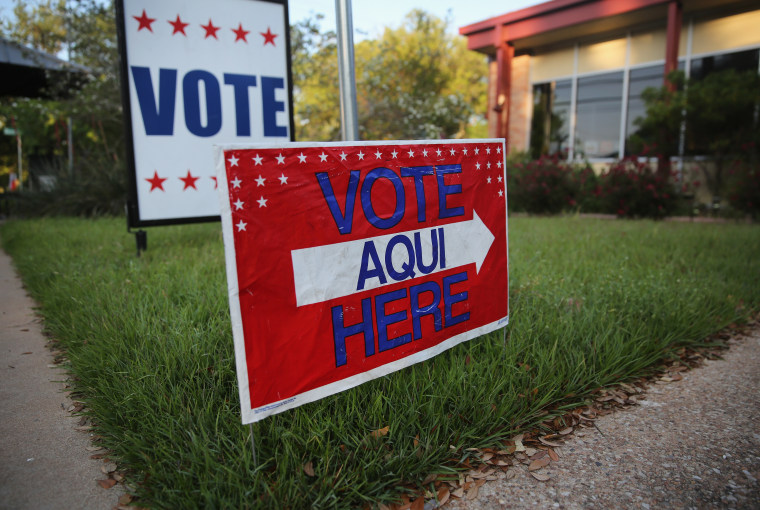One of the greater misnomers about voting is that all voter participation is equal. Many people will say that if Latinos want to stop injustices that impact their community, they simply need to “get out and vote.” But that argument ignores the fact that our electoral system is designed to minimize minority participation. A recent Supreme Court decision rejecting the way North Carolina drew up congressional districts for partisan advantage may change that.
One such mechanism politicians use to disenfranchise minorities is through district gerrymandering, a strategy that manipulates boundaries in order to stack the deck in favor of one political party. Gerrymandering has been around since the beginning of our government, but improvements in voter data gives today's politicians unsurpassed advantages that essentially allows them to choose their voters, rather than voters given a fair shot at choosing their representatives.

The impact this has on our democracy is difficult to understate. David Dale's revealing book, "Ratf**ked: The True Story Behind the Secret Plan to Steal America's Democracy" takes us through the Republican initiative to turn blue districts red by looking for opportunities in which the party could "pack" or "crack" districts that would give them an advantage. As Elizabeth Kolbert writes, packing "the party in charge of redistricting tries to “pack” voters from the rival party into as few districts as possible, to minimize the number of seats the opposition is likely to win. In the [cracking], blocs of opposition voters are parceled out among several districts, to achieve the same goal."
Gerrymandering in favor of a political party instead of race has so far been deemed constitutional. This allows Republicans to target minority voters and say that it has nothing to do with race, but with party. This has given the GOP an important tool in disenfranchising Latinos, African Americans and other voters because there is significant overlap between the Democratic party and minorities.
For example, in North Carolina’s 12th Congressional District, African Americans had already been able to elect a candidate of their choice, but when the black population grew, Republicans drew the district to add the increase in the African American population to that same district. The practical effect this had was to make adjoining congressional districts safer for the Republican party by minimizing the minority voters.
Matt Barreto, an expert on Latino voting and principal of the polling firm Latino Decisions, has been an expert witness in numerous redistricting voting rights lawsuits where his analysis and reports have been relied upon by state and federal courts to invalidate racial gerrymandering similar to that in North Carolina. He says that establishing discrimination against minorities when there is so much overlap with the political parties has been difficult to prove.
"When it comes to drawing districts, there is a fine line between keeping the minority population so small that it can never have meaningful influence, or overly packing minorities into one or two districts, to keep them from influencing any other districts", Barreto said.
Barreto, who has done polling for the Clinton campaign, pointed out that, "both tricks have been extensively used to dilute the minority vote, especially in states like Texas and Florida." States like Wisconsin, Pennsylvania and Michigan have also ranked high as a priority for the Republican party.
However, the recent Supreme Court decision will now make it more difficult for political parties to argue that their gerrymandered districts are based solely on partisanship.
Justice Elena Kagan wrote the opinion for the majority, saying that race and partisanship cannot be treated as separate entities. This places districts under greater scrutiny where partisan gerrymandering is being used to dilute the voting power of minorities. Rick Hasen, a constitutional scholar that focuses on election laws, called this decisions a "big deal".
This victory comes at the heels of a growing body of research that gives empirical evidence of the sophistication of our politicians in redistricting. In their book "Gerrymandering in America: The House of Representatives, the Supreme Court, and the Future of Popular Sovereignty, Anthony J. McGann, Charles Anthony Smith, Michael Latner and Alex Keena look at the direct connection between the Supreme Court's decision to allow partisan gerrymandering and the specificity at which parties are now able to rig the system to their advantage.
Their book adds to the growing list of standards being developed by researchers that could be used to prove in the courts what districts are being unfairly manipulated. Without this body of evidence, Justice Kagan would be without much evidence in her decision.
The argument that minorities simply need to turn out and vote is rooted in privilege, since it ignores the many ways that minorities are targeted by our electoral system. From Voter ID laws that erect barriers to participation, the resistance to automatic voter registration and the existence of gerrymandered districts that dilute minority voting power, our electoral system systematically disenfranchises Latino and other voters. And these topics only scratch the surface of our unfair representative system. If we are to become the democracy we claim to be, taking down laws similar to North Carolina's is a good step.

